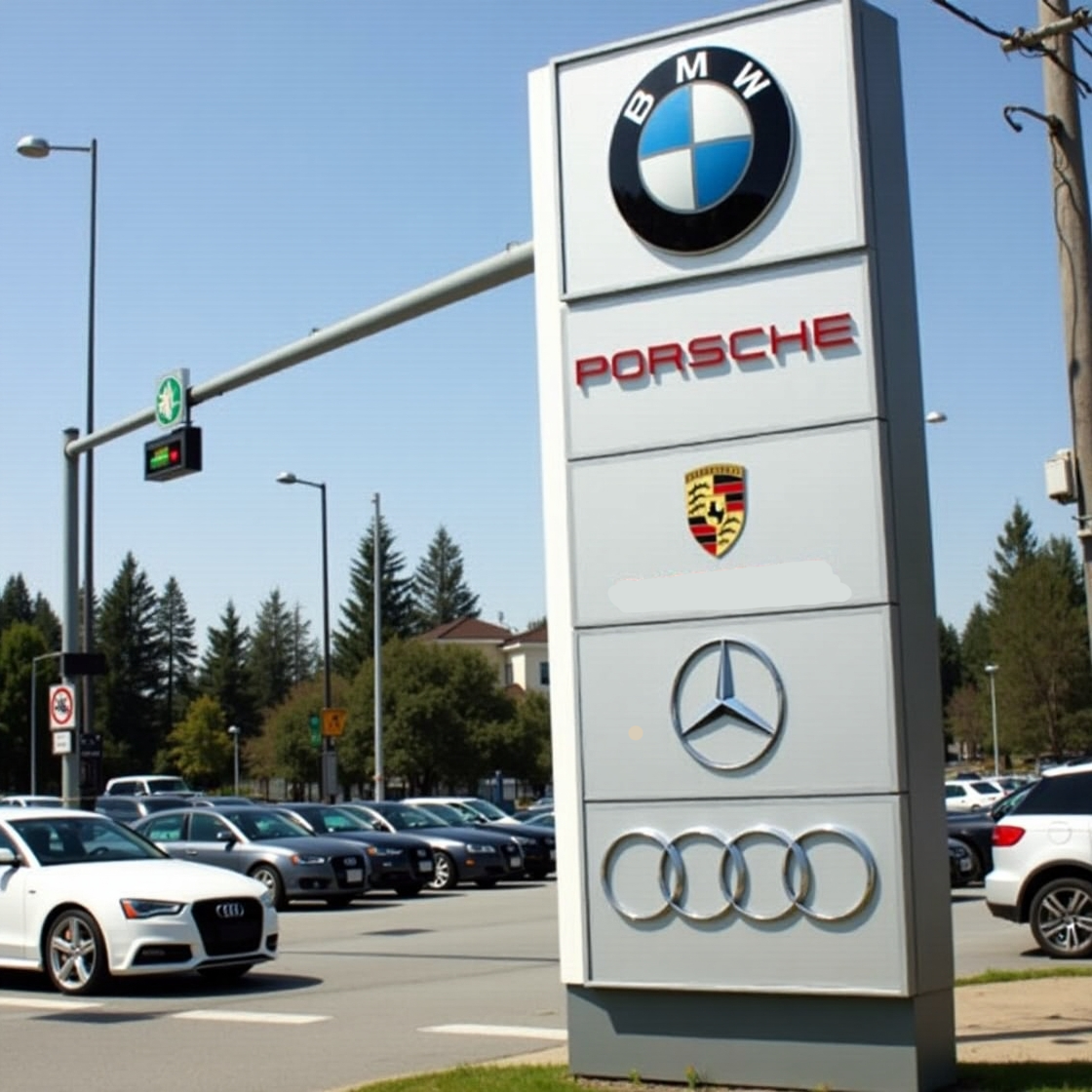
Vancouver, BC - March 27, 2025 - Vancouver’s German Car Corner, located at Boundary Road, Broadway, and Lougheed Highway, has long been a destination for luxury automobile enthusiasts. With Audi, Mercedes-Benz, and BMW dealerships all in close proximity, and Porsche just a short drive away, this area is a hub for premium automotive brands. However, as global trade tensions—including potential tariffs—continue to reshape the industry, German manufacturers are increasingly relying on their Canadian and other world partners to maintain stability and growth in the market.
Navigating Economic Challenges and Market Shifts
The impact of tariffs and supply chain disruptions has forced German automakers to rethink their strategies in Canada. While demand for luxury vehicles remains strong, dealerships like Brian Jessel BMW will have to adapt to shifting market conditions. Under the leadership of Marketing Manager Abdel Karim Awwad, Brian Jessel BMW has already employed several strategies beyond traditional sales to attract and retain customers over the past five years:
- Community Engagement: The dealership hosts up to 300 annual events supporting various community groups, charities, and multicultural organizations. These events range from elegant galas to intimate gatherings, helping to build strong relationships with the local community.
- Exclusive Services: Brian Jessel BMW serves as the exclusive diplomatic dealer for military and corporate sales, demonstrating their commitment to excellence in both sales and service
- Customer-Centric Approach: The dealership focuses on building long-term relationships with customers, following the philosophy that "Once someone trusts buying cars from you, they won't go anywhere else"
- Valet Service: Brian Jessel BMW offers a valet service, where they drive to customers' homes and offices in Vancouver to pick up and deliver vehicles for service. This convenience sets them apart from competitors.
- Pre-Owned Vehicle Center: The dealership operates a separate pre-owned vehicle center, allowing them to specialize in both new and used car sales effectively
The Push Toward Electric and Hydrogen Vehicles
One of the biggest challenges facing the German auto industry today is the transition to sustainable mobility. While electric vehicles (EVs) have gained traction, expanding into hydrogen-powered cars presents new hurdles in infrastructure and production. Brands like BMW, Mercedes-Benz, and Audi are working to develop innovative solutions, but the market shift is not without obstacles. Supply chain issues, high production costs, and consumer readiness all play a role in how quickly these changes can take effect.
According to the BMW Blog, BMW successfully sold 368,523 electric cars in 2024 when deliveries of zero-emission vehicles rose by 11.6% compared to the previous year. This allowed the Bavarian luxury brand to outsell Mercedes and Audi combined in terms of EVs. The three-pointed star shipped only 185,100 cars without a combustion engine, down 23% from 2023. The company with the four rings delivered 164,000 EVs, a drop of 8% from the previous year.
President Trump's Tariffs
Roughly half of the 16 million vehicles sold in the U.S. in 2024 were imported, according to S&P Global Mobility. The list of affected brands is long, including Asian and German brands. The move could further damage relations with the European Union, which counts the U.S. as its largest car export market. German automakers, in particular, are vulnerable: One in every three Porsches is sold in America and in 2024 Mercedes-Benz sold 324,500 Passenger Cars (16.4% of global sales) and 49,600 commercial and private vans (12.2% of global sales) in the United States.
It is interesting to note that BMW's plant in South Carolina, on the other hand, is its biggest worldwide by output and a major exporter to markets including China, Germany and Britain, according to an article in USA Today. This gives the company scope to reshuffle production and make more for the local market if U.S. President Donald Trump follows through on threats to impose tariffs of around 25% on vehicle imports. This will be painful for BMW competitors Audi and Porsche, both Volkswagen VOWG_p.DE brands with no production in the U.S.
As German automakers work to solidify their presence in Canada and the USA, Vancouver’s German Car Corner remains a key focal point for the future of luxury and sustainable mobility. Learn more about this and other similar stories on WBN News Vancouver, your source for local business and economic insights.
#German Car Corner #Luxury Cars Vancouver #BMW Canada #Mercedes Benz #Audi Canada #Porsche Vancouver #Electric Vehicles #Hydrogen Cars #WBN News Vancouver #Elke Porter
Connect with Elke at Westcoast German Media or on LinkedIn: Elke Porter or contact her on WhatsApp: +1 604 828 8788

